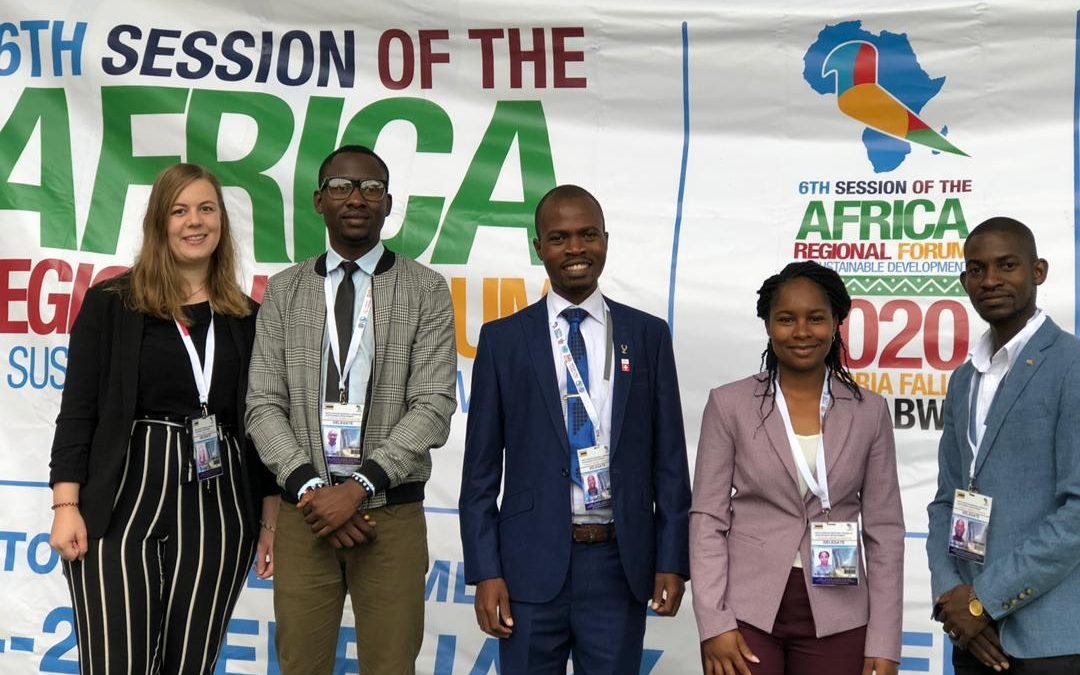In 2015, the world’s leaders made seventeen promises to be delivered by 2030 to the future generations in form of the Sustainable Development Goals (SDGs), also called Agenda 2030,
which are a clarion call for action by all countries both developed and developing to promote prosperity while protecting the environment. Moreso, in 2015, African leaders at Addis Ababa went on to adopt the Agenda 2063 which is Africa’s blueprint and masterplan for
transforming Africa into the global powerhouse of the future. Agenda 2063 is also the Continent’s strategic framework that aims to deliver on its goal for inclusive growth and sustainable development. SDGs recognise that ending poverty must go hand-in-hand with
strategies that build economic growth and address a range of social needs including education, health, social protection and job opportunities while tackling climate change and
environmental protection. The 17 SDGs are categorised into five themes (5 Ps): People, Planet, Prosperity, Peace and Partnerships. It is important to note, that none of the goals can
stand alone or can be achieved on its own, but all of them are interwoven and condition each other. When all the 5Ps are improved together in an interconnected manner, the result should
be a sustainable developed planet. The Decade of Action, referring to the years 2020-2030, is calling for acceleration of sustainable solutions to the world’s biggest challenges, from poverty and gender inequality to
climate change and closing the financial gap between the rich and the poor counties in achieving a just and sustainable world. With the deadline for the SDGs only ten years away,
there is need for more action than ever before to make sure that the world succeeds. This requires each of us to act individually and collectively, locally and globally. The face of
Africa is young, and young people have to showcase how they are contributing to the SDGs in the region and in their countries and explore ways of enhancing collaboration and
meaningful involvement of youths at all levels. Achieving these goals is everyone’s responsibility and there is need for young people in Zimbabwe to answer this call by
localising all the 17 SDGs. It is the responsibility of this generation to end extreme poverty, win the race against climate
change and conquer injustice and gender inequality, leaving no one behind while doing so. It is the promises we have made to our future generations, hence it requires everyone to play his
or her part.
Young people also must identify continuously the risks along the way so that noone is left behind. For example, having a lot of laws and regulations on agriculture or energy industry to combat climate change may in turn result in agriculture becoming too expensive
for young and simple farmers or young r people working in coal mines losing their jobs as coal becomes a less popular energy source. Young people have a role to play in holding those
in the public sphere to account and point to what is possible when action delivers results. Young people must be able to lead their communities and be at the forefront of driving
sustainable innovation, financial investments and technology if we are to achieve sustainable development in Zimbabwe and the region. The UN Deputy Secretary General Amina Mohammed at the 6 th session of the Africa
Regional Forum on Sustainable development (AFRSD) 2020 even called on young people to be the drivers of sustainable development in Africa because the “future is young and the
future is now”. Therefore, there is need to integrate SDGs at all spheres of society from the local level going upwards. This bottom-up direction of implementing the SDGs is crucial as
change, and thus sustainable development, starts with change in the people’s minds and theireveryday behaviour. The Africa Regional Forum on Sustainable Development (AFRSD) took place from 24 th to 27 th February in Victoria Falls, Zimbabwe. This was a fundamental stepping stone in
achieving sustainable development as African governments came together with their development partners to take stock of their progression with all the 17 SDGs. The theme for
this sixth session of the forum was “2020-2030: A decade to deliver a transformed and prosperous Africa through the 2030 Agenda and Agenda 2063”. Throughout the forum, there was a resounding consensus that young people have an imperative role in achieving Agenda 2030. Young people were equally demanding their
space in decision-making processes and receiving the technical support that is much needed to achieve this. It’s time for young people to upscale their efforts to deliver on SDGs and they
can do it with the support from their governments, private sector and their communities at large. We can achieve and deliver on Agenda 2030 if we accelerate and collaborate.
By Progress Princess Sibanda


Recent Comments